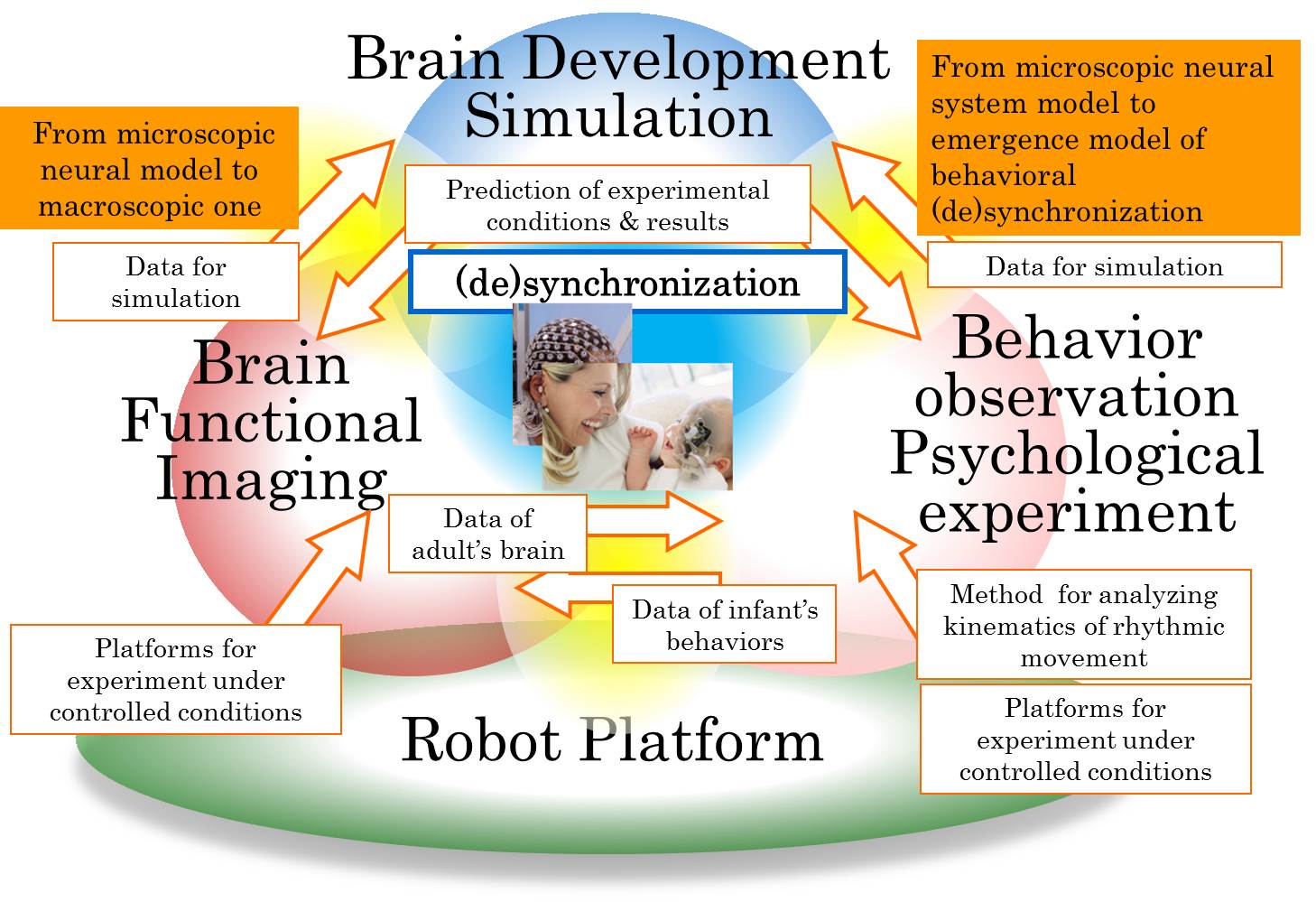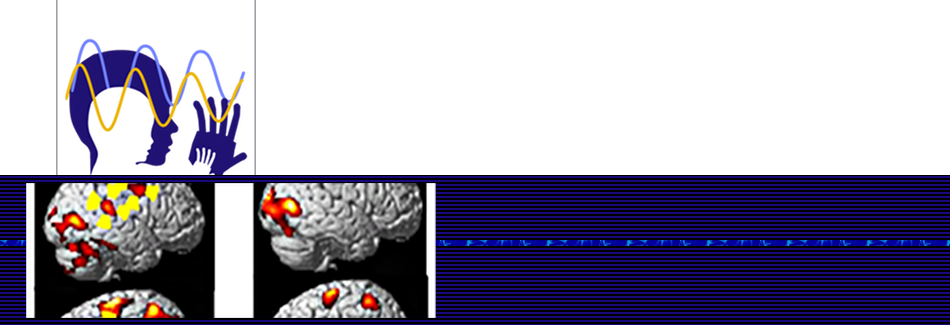Purpose and Background of the Research
How the microscopic neural activity is reflected in the human behaviors is a big mystery shared by many different disciplines. Medical and neuro- science have tried to explain the microscopic structure inside a brain but have not much focused on the macroscopic structure of social interaction. Contrarily, cognitive science and developmental psychology mainly observe human behaviors and therefore it is difficult to understand the internal mechanism.
We have been advocating Cognitive Developmental Robotics (CDR) which aims to provide new understanding how human's higher cognitive functions develop by means of synthetic approaches that developmentally construct cognitive functions.
In this project, we focus on an issue of self/other cognition, based on CDR approaches:
- a large scale simulation of brain development with realistic body,
- imaging studies for real-time interaction,
- building a realistic child robot with muscle-skeleton system,
- behavioral experiments with robot platforms, and then,
- establishment of constructive developmental science.

Research Methods
- Brain Imaging Group
Observation of brain activities in real-time interaction comparing with the simulation results
- Psychological and Behavioral Experiment Group
Observation and analysis of infant behaviors such as rhythmic movement and social interactions related to synchronization or de-synchronization
- Developmental Brain Simulation Group
Construction of a brain neuro-dynamics model which can exhibit the brain waves and tunes it to compare the activity to the real one, which is observed by MEG or fMRI
- Robot Development Group
Development of infant robots which are connected to artificial brain and can interact with a human
Expected Achievements and Scientific Significance
First, we may make an impact on neuroscience by suggesting a neural network related to the development of the self-other concept. We may make another impact on cognitive science and developmental psychology by providing simulations or psychological experiments with a robot that have a computational model of the development of the self-other concept. As a matter of fact, also this makes a big impact upon the design theory of robots which are expected into our human society. The mutual feedback with these disciplines is indispensable to improve our model, and the strong connection with them will enable the establishment of a new science, “constructive developmental science” that has a stronger impact on current science and technology.






